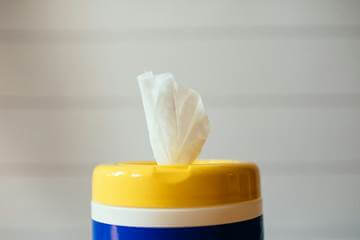Oct 2024 Newsletter: Arlene Honored as a Forbes Sustainability Leader
Hello!
|
hope you are having a good beginning to your fall. I’m on the East Coast for two weeks giving talks about how science can impact policy to protect our health and meeting with congressional staff about reducing harm from flame retardants and antimicrobials–two major areas of focus for us at the Green Science Policy Institute. Best of all, in D.C. I’ll visit my daughter Annalise and granddaughter, who will soon be having her first birthday. I am very surprised and honored to have been selected for the inaugural Forbes Sustainability Leaders list of 50 global changemakers. The magazine wrote: “For the first time, Forbes is highlighting 50 superstar entrepreneurs, scientists, funders, policymakers and activists who are leading the charge to combat the climate crisis … Forbes inaugural Sustainability Leaders span industries and disciplines while all demonstrating exceptional ambition, innovation, and recent, tangible impact that is both scalable and sustainable.” You can view my write-up here. I was especially pleased to represent reducing chemical harm in this list of distinguished leaders focused on climate. As we wrote in our New York Times opinion piece If We Stop Burning Fossil Fuels, Will We End Up with More Plastic and Toxic Chemicals? climate and toxics are closely related. And right now, the most For an inspiring (and catchy) message about the importance of voting to preserve democracy, check out this fun original song about the 2024 election performed by the cast of Hamilton. Please consider volunteering with or donating to one or more of the worthy Also, you might enjoy Letters from an American by historian Heather Cox Richardson. I look forward to receiving her thoughtful nightly updates of the day’s important news, often with noteworthy connections to the history of our country. In D.C. next week, we will discuss the overuse of antimicrobials. Along with Earthjustice, we recently sent a letter, co-signed by more than 40 environmental and health organizations, urging the Food and Drug Administration (FDA) to make a decision on whether it will continue to allow the use of the last three antimicrobial chemicals permitted in over-the-counter hand and body washes. (The agency banned 19 such chemicals in 2016 and said they would decide about these final three within a year.) During the intervening eight years, evidence has grown on the health harms of antimicrobials—and also that they are not needed. Indeed, the US Center for Disease Control recommends using plain soap and water to wash hands, stating “studies have not found any added health benefit from using antibacterial soap…their ingredients may not be safe… and [they] may contribute to antibiotic resistance.” We will be meeting to share research with the FDA and to encourage them to reach the correct decision soon. Also in D.C., we will continue to encourage updating of the 1970 flammability standard that leads to the need for cancer-causing flame retardants in cars. Because of this standard, we found harmful flame retardants in all 101 cars from 22 brands we tested for our recent research paper. We will also be educating decision makers about the harm of new standards leading to the need for flame retardants in the plastic around lithium ion batteries. These chemicals cannot impact highly energetic batteries fires and can lead to harmful chemical exposures throughout the life cycle of the electronic products. Finally, we are also concerned about PFAS and other harmful chemicals in the manufacturing of microchips. Thanks to funding from the U.S. CHIPS Act, new chipmaking plants are coming to Arizona, Ohio, and other states. This will provide needed jobs in these regions, but unfortunately legislation just passed that exempts these plants from standard environmental reviews. We need a cleaner generation of chipmaking that does not harming our health and environment. Best wishes for a Happy Halloween, without a scary couch as in the blurb below, and a good rest of your year. Arlene P.S. The Green Science Policy Institute is still accepting applications for a Principal Scientist to be my thought partner and to work with our team on our science and policy projects. To learn more and apply, see our Jobs Page. Please share with scientists who may be a good fit. |
Flame Retardants Beware! Out of Our Couches!With Halloween coming up, here’s a spooky couch graphic from years past. The skulls represent the toxic flame retardants that were added to furniture foam beginning in 1976 to meet an ineffective California furniture flammability standard called TB117. You can learn more in an informative Retro Report from the New York Times. With Halloween coming up, here’s a spooky couch graphic from years past. The skulls represent the toxic flame retardants that were added to furniture foam beginning in 1976 to meet an ineffective California furniture flammability standard called TB117. You can learn more in an informative Retro Report from the New York Times. However, some flame retardant manufacturers and test labs are continuing to support open flame standards likely to be met with flame retardants. Such standards can delay ignition time for a few seconds, but they also can increase smoke production and fire toxicity. The industry message that fire deaths have increased in California since the adoption of our new standard is based on wildfire deaths! Fires associated with upholstered furniture are unchanged. To learn more, check out our blog here. |
How to Enjoy Your Pumpkin Spice Latte Without ToxicsBy Lydia Jahl As the weather begins to cool down, you may find yourself reaching for a pumpkin spice latte or other hot beverage, glad for the change from plastic iced coffee cups to paper cups. Unfortunately, paper cups have a thin coating of plastic on the inside to keep the paper cup from getting wet. While the overall mass of plastic in a paper to-go cup may be less than in a fully-plastic to-go These problems can also be exacerbated by what you put in your paper cup, like plastic tea bags that release billions of microplastic particles or some straws that contain PFAS. What can you do to limit your exposure? If you can’t break your Starbucks habit, bring your own glass or stainless steel container to the cafe (though keep an eye out to see whether your favorite cafe still first makes the drink in a plastic container). Even better, make your own drink at home, preferably in a glass mug (some ceramics—especially painted ones—can be contaminated with lead or cadmium). If you’re a tea drinker, choose a brand that does not use any plastic in their tea bags or brew loose-leaf tea in a stainless steel infuser. If you’re a coffee drinker, it’s very hard to find a coffee maker without any plastic. Your best bet is to use a glass or stainless steel pour-over dripper with unbleached paper filters. Or perhaps matcha is more your cup of tea? Just make sure to stir it with a traditional whisk or stainless steel frother rather than an immersion blender, as these often leach flame retardants. |
Kitchenware DeceptionsBy Ariana Spentzos Concerned about the safety of your kitchenware choices? California’s recent ban on PFAS in food packaging, entitled the “California Safer Food Packaging and Cookware Act”, is aimed at safeguarding consumers and promoting transparency. Since early 2023, it has mandated the online disclosure of intentionally added hazardous chemicals, as designated by the Department of Toxic Substances Control, and includes provisions to prevent misleading advertising on cookware. Despite these regulations, we have discovered numerous instances of major retailers violating the new legislation. Many manufacturers now market their Teflon cookware as “PFOA-free,” potentially misleading consumers into believing these products are entirely PFAS-free. While PFOA, a well-known and widely used toxic PFAS chemical, hasn’t been used in Teflon pan production for years, Teflon cookware still contains the PFAS compound PTFE. Although PTFE does not share the same health risks as PFOA, scratched or overheated pans release microplastics and harmful fumes, and PTFE contributes to PFAS contamination through manufacturing and end-of-life disposal. Additionally, recent testing conducted by Mamavation found that more than one-third of food wrappers still indicated the presence of PFAS—even after the legislation came into effect. Considering the ongoing environmental and health concerns linked to the full lifecycle of PTFE-coated items, we continue to recommend avoiding non-stick cookware that uses these coatings, including pans, air fryers, and cooking sheets. |
Are These Wipes on Your Kid’s Back-to-School List?by Rebecca Fuoco We’ve been hearing from concerned parents that school supply lists are asking children to bring disinfecting wipes for their desks. Many wipes contain QACs, which have been linked to reproductive, developmental, respiratory, dermal, There is no need for a disinfectant which may be harmful for us and especially to our children. For most everyday cleaning, plain soap and water is best. This trend is disturbing, especially considering that asking kids to use these wipes in public K-12 school is against the law in California and likely other states. Did your child’s school supply list include disinfecting wipes? If so, has your child been instructed to use the wipes on their desk or other school surfaces? If so, please get in touch with Anna@GreenSciencePolicy.org. |
Green Science Policy Institute in the Newsby Rebecca Fuoco Below are recent news articles, blogs, podcasts, newsletters, and more that have featured our Institute’s work and expertise.
|
CalendarOctober 10, 2024 at 12PM Eastern: October 11, 2024 at 12PM Eastern: |







